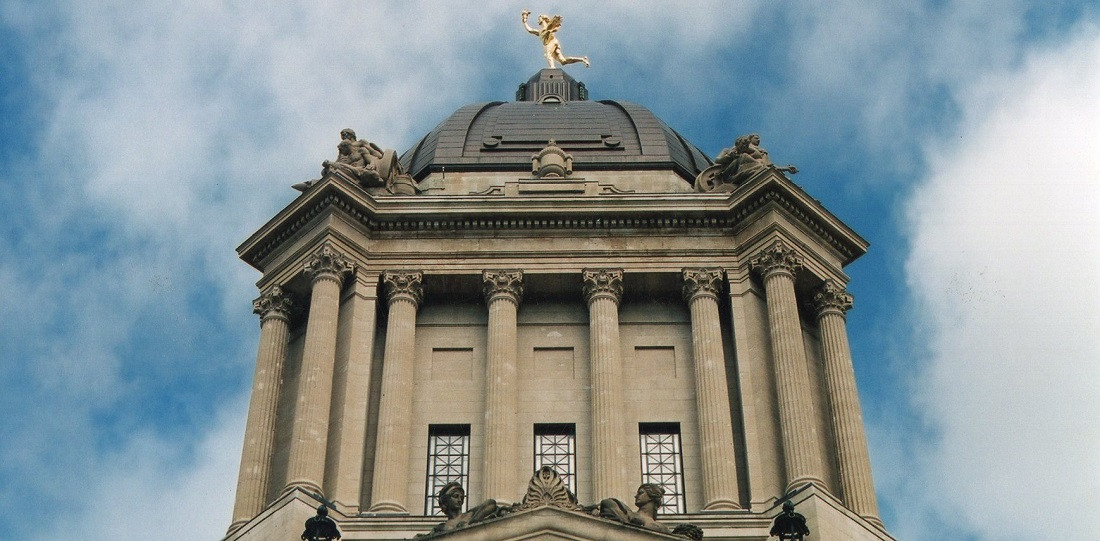Freedom of information at risk with Bill 49
Access to information in jeopardy, U of W professor says
Premier Brian Pallister’s response to the COVID-19 pandemic has been roundly criticized by the opposition, local news media and community activists alike. But beyond the pandemic response itself, Pallister’s Progressive Conservative (PC) government has also been accused of using the pandemic as cover to push through anti-democratic legislation.
One such piece of legislation is Bill 49, the Freedom of Information and Protection of Privacy Amendment Act, which one University of Winnipeg (U of W) professor is denouncing as dangerous.
Dr. Kevin Walby is an associate professor in the U of W’s Department of Criminal Justice, the director of the Centre for Access to Information and Justice (CAIJ) and an advocate for freedom of information (FOI).
“One reason I do the work that I'm trying to do with (the CAIJ) is to really promote FOI as a tool for citizenship, as a tool not just for investigative journalists ... but for everyone,” Walby says.
When asked about Bill 49's impact on FOI, Walby does not mince words.
“Bill 49, I think, is going to wreck freedom of information in Manitoba,” he says. “The PCs with Bill 49 are ratcheting up secrecy in a way that I think is really disconcerting."
Walby says Bill 49 will affect FOI negatively due to amendments and additions that give the provincial government far more power to delay, block and reject FOI requests.
An example of this is section 13 of the bill. The section includes a change of language in the FOI laws that Walby says should not be overlooked.
“They’re adding some language that allows the government to block access ... They’re replacing the word ‘incomprehensible’ with ‘trivial.’’’ Walby says.
While the change may seem minor, Walby says it could give the government more leeway to deny FOI requests.
“Previously, if you submitted a request, and it was ‘incomprehensible,’ then they could say, ‘Well, we can’t deal with that request,’ which is fair,” Walby says. “But ‘trivial’ is more of a value judgment.
“Now the government gets to decide what’s trivial or not. Even if it is intelligible or comprehensible, they can still call it ‘trivial.’”
Bill 49 also includes new FOI laws that affect labour unions. The added text on labour relations and workplace investigations allows the head of a public body to block the release of information that could be unflattering to them, including information that might “harm the competitive position or interfere with contractual or other negotiations of the public body as an employer.”
“This is a direct attack on Manitoba unions who use FOI to figure out what the government is doing to public-sector employees,” Walby says.
The bill also extends the time of disclosure for FOI requests from 30 to 45 days, a move that Walby calls “regressive.”
“We see in other countries, some jurisdictions are reducing the time to disclosure from 30 to 20 days ... to 15 days. In some countries, it’s 10 days, and we're going in the opposite direction."
Walby says some individuals may be unaware of Bill 49’s significance and its impact on FOI.
“A lot of people may not realize the importance of freedom of information,” Walby says. “They may not use freedom of information, but there are actually a lot of people who rely on it.”
“Journalists rely on it. Unions rely on it to investigate the conditions of labour of their members. Academics use it. Citizens who are concerned about any kind of government conduct can use it.”
In an email statement to The Uniter, a spokesperson for the Ministry of Legislative and Public Affairs states: “The purpose of Bill 49 is to increase the transparency of public services while ensuring personal information is protected as part of our commitment to open government.
“This bill includes a mandate for periodic review which requires public representations ... These representations identified an expectation for greater access to public information and transparency in the delivery of public services.”
According to the statement, “Public bodies also noted that a growing demand for access to information has made the administration of the act difficult to sustain.”
The statement concludes by saying, “Our government is committed to transparency and making sure Manitobans have the access they deserve.”
The type of transparency Manitobans deserve is changing with Bill 49.
Published in Volume 75, Number 25 of The Uniter (May 20, 2021)








